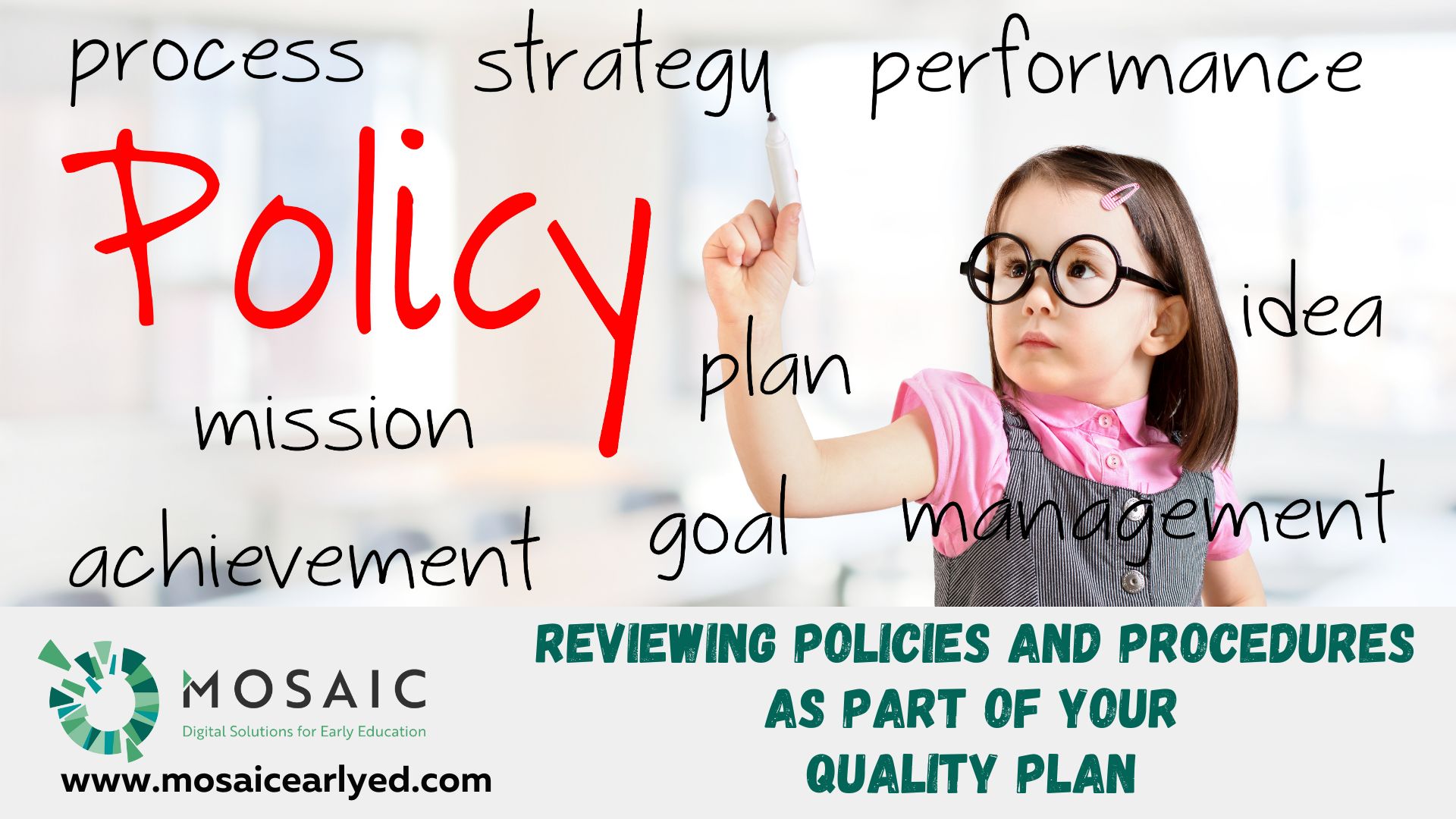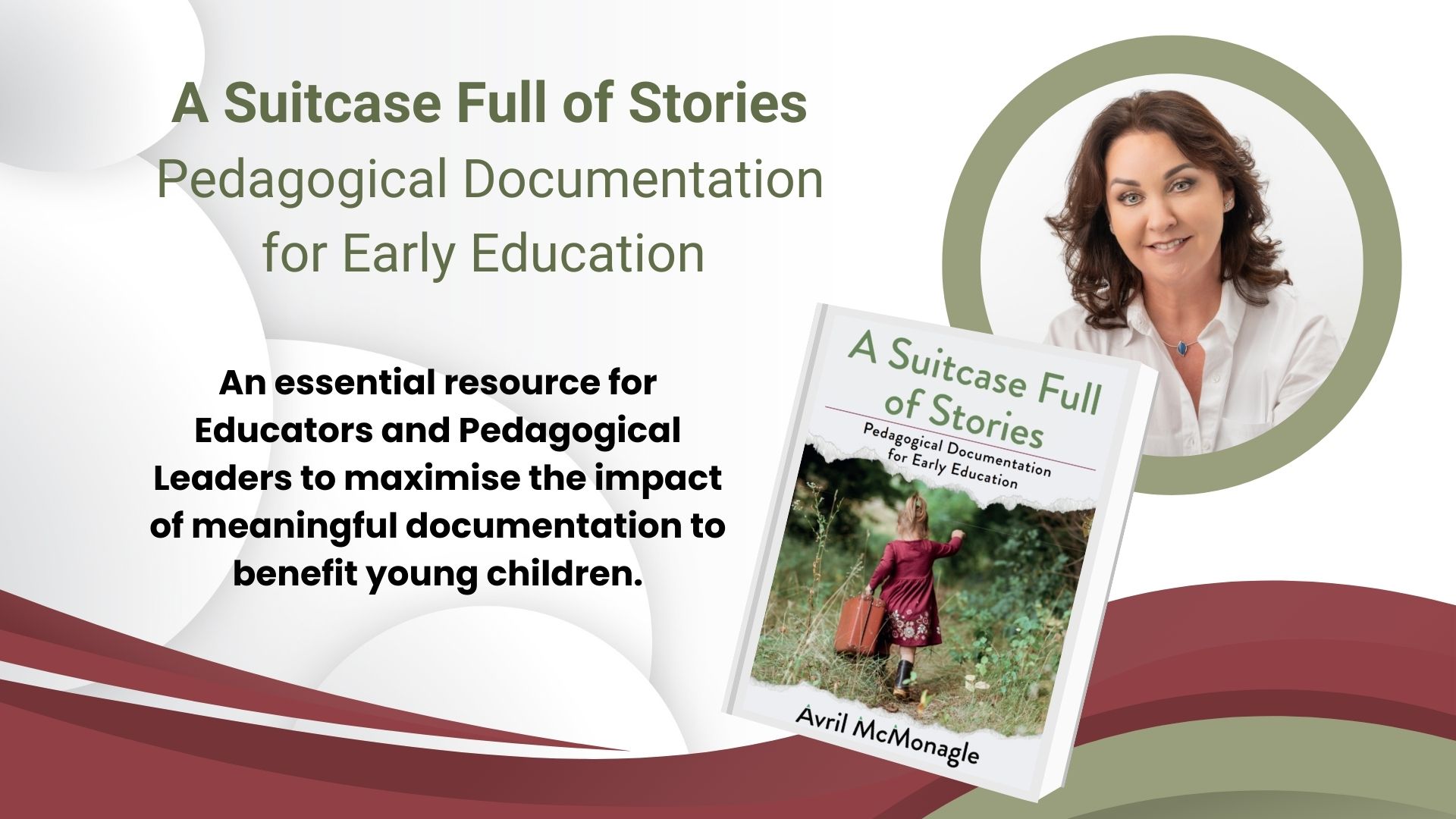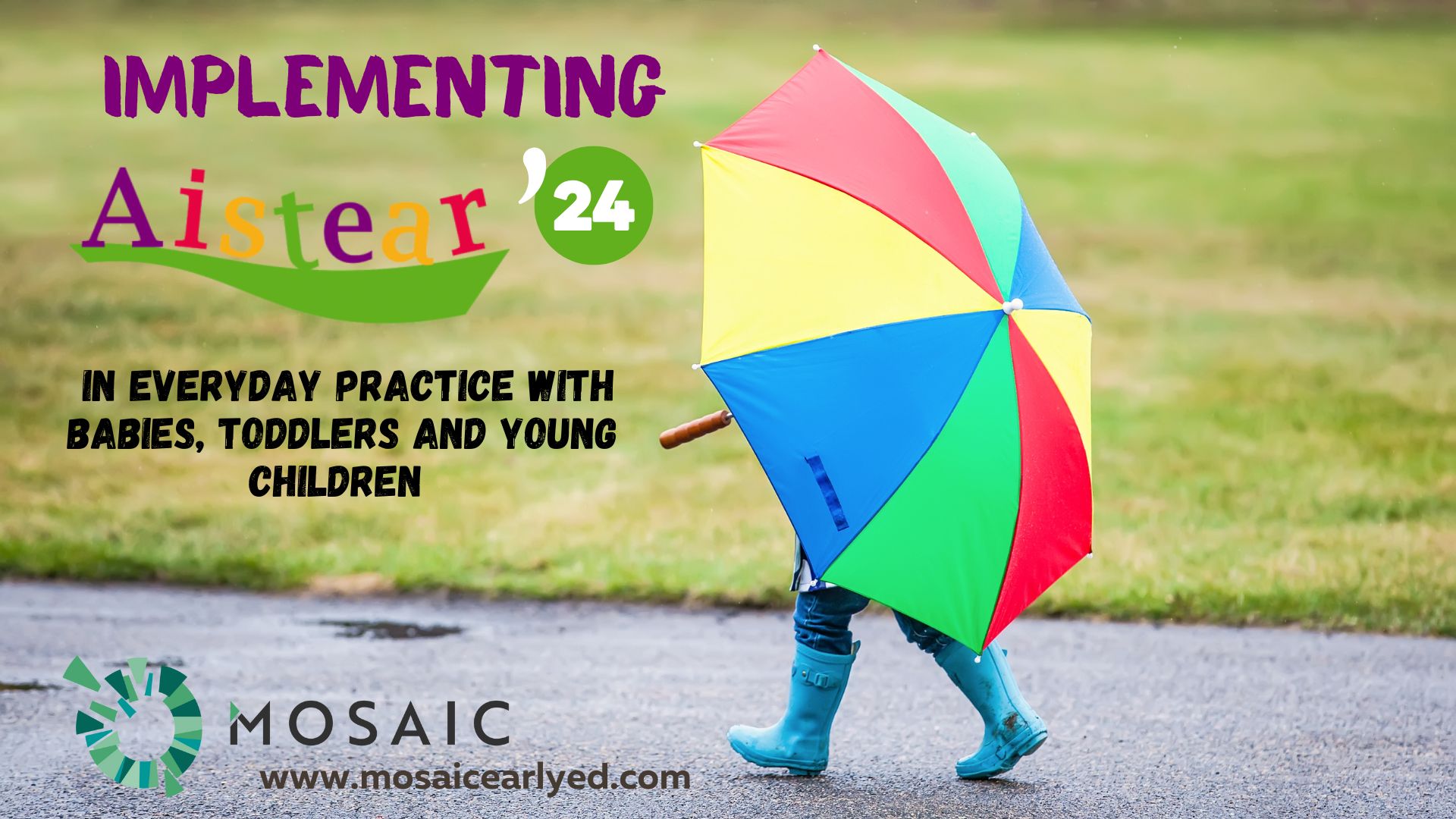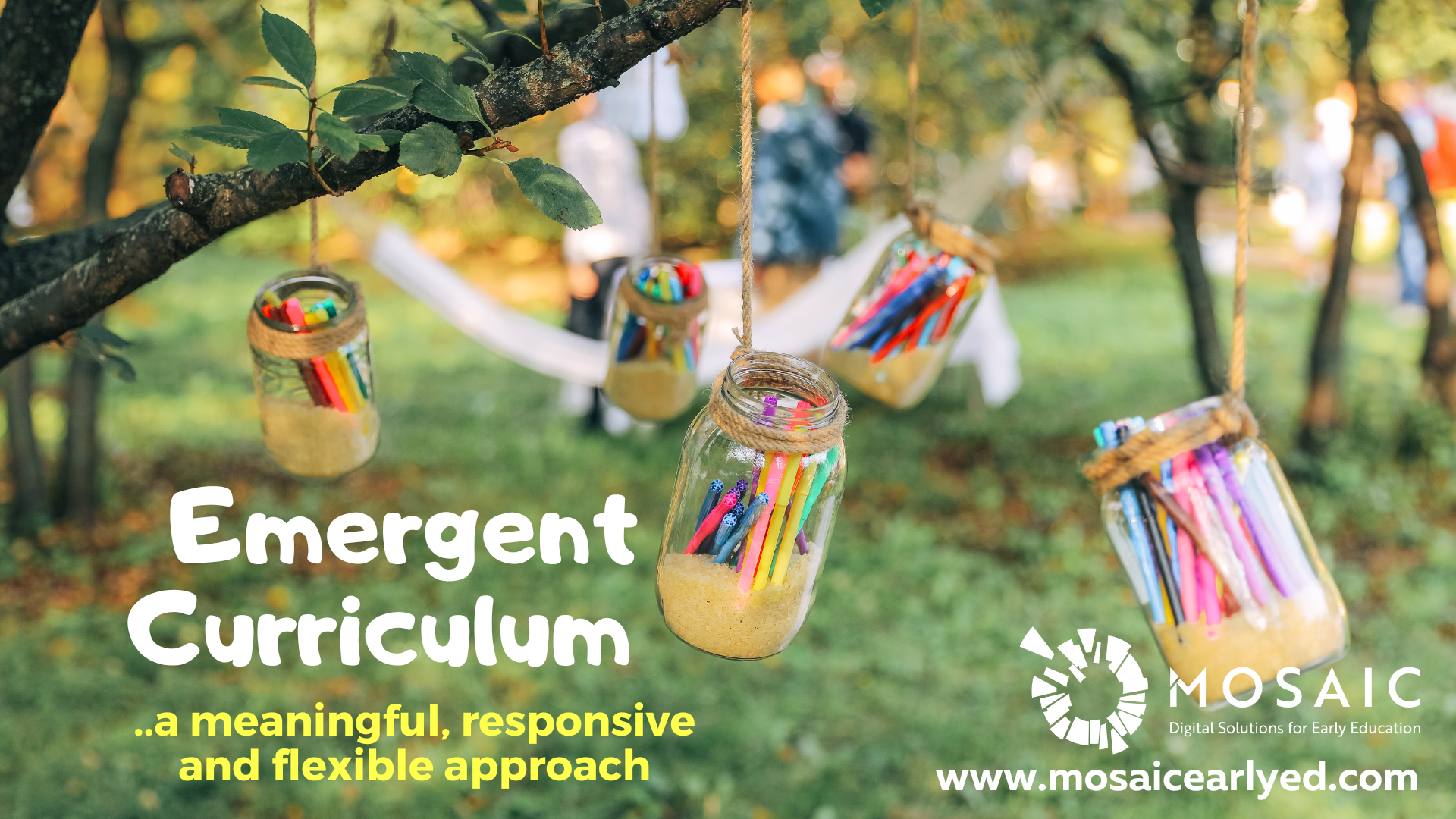Conducting a Review of Policies and Procedures
Programme Introduction
Policies and procedures are one of the most important sets of documents required to operate an early childhood service. However, having the most professional and comprehensive policy manual is of no use if the policies it contains are not being implemented. Likewise, procedures that outline and guide everyday practice do little to inform and support staff if they are unfamiliar with them.
This practical programme will give you all the tools you need to carry out a review of the mandatory policies and procedures required by Tusla as part of your Quality Plan. You will also get tips and strategies about engaging staff with policies and ensuring consistent application across the early childhood setting.
Components include:
Please note: this programme will take around 1.5 hours to complete. However, the policy review itself will be a longer piece of work if the tools provided are applied.
Programme Content
- Legislative requirements
- Resources to support policy development and review
- Guide to reviewing policies and procedures
Key Learning Outcomes
Participants will:
1. Appreciate the importance of Policies and Procedures and conducting ongoing reviews.
2. Understand mandatory policy, procedure and statement requirements.
3. Conduct a review process and use resources to support this.
4. Evaluate and review current policy documents to meet regulatory standards.

1.5 Hours
Free
Presentation with video/audio
Easy to follow components
Downloadable reference documents
Test multiple choice questions
Certificate of Completion
You may also like
A Suitcase Full of Stories - Book information feature
0.5 Hours
Free
'Implementing Aistear 2024'
2.5 Hours
€25.00
Emergent Curriculum (2nd ed. April 2023)
2.5 Hours



